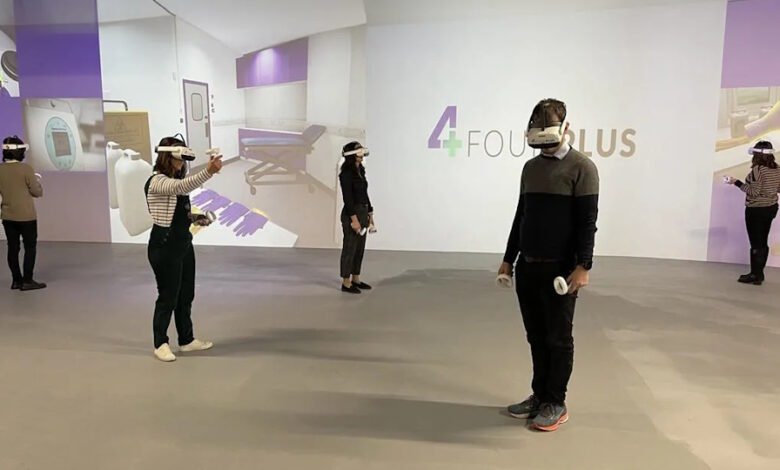Future medicine makers will get VR training at new UK centre

A new centre is to be set up in the UK to provide virtual reality-assisted training in medicines manufacturing, providing students with ‘near to real life’ experiences of industry facilities.
The programme aims to address critical skills demand and shortage in life sciences, according to the University of Birmingham, which is leading the effort to set up the facility, known as the RESILIENCE Centre of Excellence for UK Medicines Manufacturing Skills.
Backed by £4.5 million funding from Innovate UK and the Office for Life Sciences, RESILIENCE will use VR and mixed reality simulations alongside traditional teaching to help foster a new generation of drug and vaccine manufacturers and enhance the skills of the current workforce.
The hope is that through collaborations with healthcare and pharmaceutical organisations, it will become a “single-entry point for training and career input including a pipeline of continuing professional development courses,” according to the team behind the project.
The Medicines Manufacturing Industry Partnership (MMIP) – which was set up by the UK government and industry to drive growth in the sector – has said that the number of people employed in UK medicines manufacturing is shrinking and production volumes are also in decline, threatening the country’s standing as a major player on the global life sciences stage.
With the right policies in place, the MMIP has suggested, the UK could attract £15 billion ($18.8 billion) in new investment over the next decade, and create an estimated 116,000 new jobs.
The Association of the British Pharmaceutical Industry (ABPI) meanwhile has warned that companies are struggling to recruit workers with digital skills, and that is a key focus of RESILIENCE which will include training in areas like data analytics and artificial intelligence.
“Innovative training technologies, such as VR and AI will give trainees access to virtual replicas of industry facilities, enabling them to become ‘workplace ready’ without the safety risks or environmental impacts of physical equipment,” said Ivan Wall, professor of regenerative medicine at the University of Birmingham and co-director of RESILIENCE.
“This approach will allow us to standardise and scale out training provision across our core partners, ensuring consistency in skills development across the UK,” he added.
Key benefits of the virtual approach will be the time that can be devoted to ‘hands-on’ training, speeding up the process while also reducing the production of manufacturing waste that has to be incinerated. RESILIENCE will also run an outreach programme for schools and colleges, providing free resources to inspire students to consider a career in the sector.
Other organisations contributing to the project include University College London, Teesside University, Heriot-Watt University, and process design company Britest.
“Building on our reforms to the skills system will require work from each and every one of us – universities, schools, and businesses,” commented Science and Technology Secretary Michelle Donelan.
“By doubling down on our investments in skills and backing British business, we can lay the foundations for an economy fit for the future – an economy that creates jobs and improves lives for communities up and down the country.”
Source link
#Future #medicine #makers #training #centre